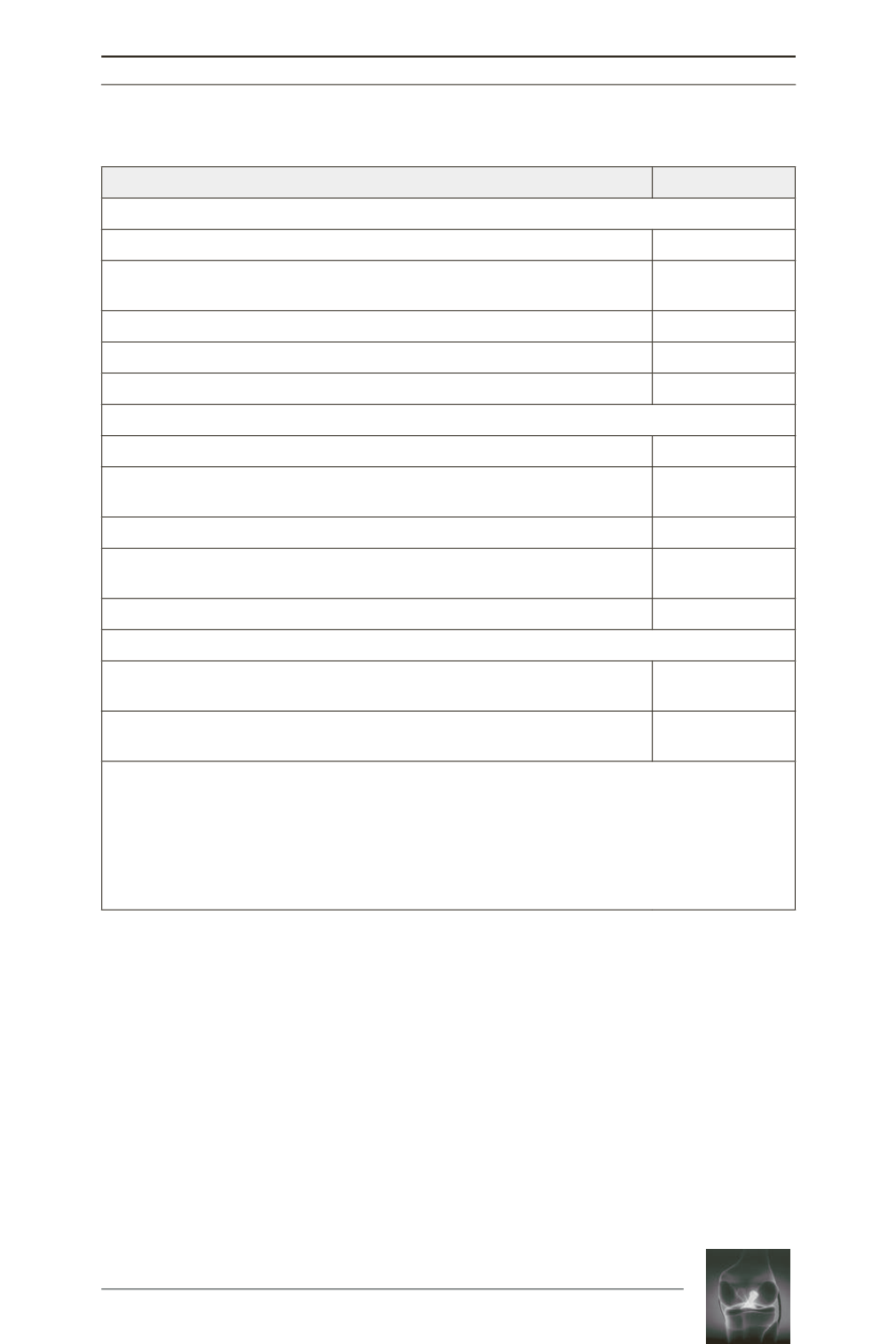

PSYCHOLOGICAL FACTORS AND ANTERIOR CRUCIATE LIGAMENT RECONSTRUCTION
235
ACL-RSI SCALE:
PREDICTIVE VALUE
Given the potential effect of psychological
factors on athletes during rehabilitation from
ACL reconstruction, it may be helpful to be
able to predict which athletes could benefit
from psychological counselling or intervention
to ensure that psychological recovery occurs in
parallel with physical recovery. It is therefore
relevant to know whether the psychological
responses athletes experience during the
rehabilitation period are related to subsequent
return to sport.
Two large scale studies have been conducted
which have shown that the ACL-RSI scale can
in fact be used to predict return to sport
outcomes. The first enrolled 100 athletes who
completed the ACL-RSI at 3, 6 and 12 months
Scale Item
Order in Scale
Emotions:
1.
Are you nervous about playing your sport?
3
2.
Do you find it frustrating to have to consider your knee with respect to
your sport?
*
6
3.
Do you feel relaxed about playing your sport?
#
12
4.
Are you fearful of re-injuring your knee by playing your sport?
7
5.
Are you afraid of accidentally injuring your knee by playing your sport?
9
Confidence in performance:
6.
Are you confident that your knee will not give way by playing your sport?
4
7.
Are you confident that you could play your sport without concern for your
knee?
5
8.
Are your confident about your knee holding up under pressure?
8
9.
Are you confident that you can perform at your previous level of sport
participation?
1
10.
Are you confident about your ability to perform well at your sport?
11
Risk appraisal:
11.
Do you think you are likely to re-injure your knee by participating in your
sport?
2
12.
Do thoughts of having to go through surgery and rehabilitation again
prevent you from playing your sport?
10
*
Item 2 was from the Quality of Life Outcome Measure for Chronic ACL Deficiency (ACL-QOL)
scale 9.
#
Item 3 measures “tension” with the positive antonym relaxed used to get a balance between
positive and negatively worded items.
Each item is scored on a 0-100 scale and scores from the 12 items are summed and averaged
to obtain a single score (0-100). Higher scores indicate a more positive psychological response.
Table 1:
ACL-RSI items











